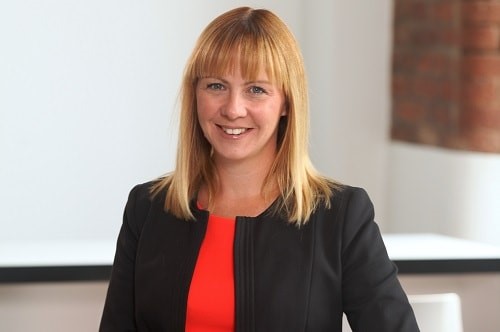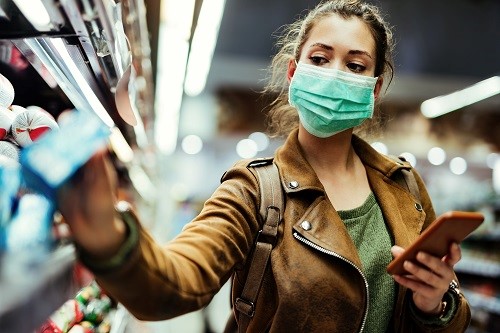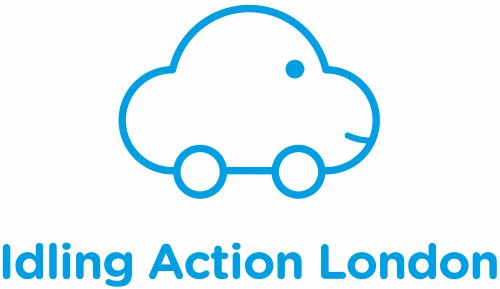When Matt Hancock rose to address parliament on face coverings in mid-July, it followed weeks of speculation that eventually we would all be required to cover up to shop.
Opinion
Face coverings in public: an illogical minefield
From the moment coverings were mandated on public transport and at medical appointments, there was an inevitability about the eventual extension elsewhere. After all, if masks were beneficial in those settings, surely that reasoning applied elsewhere? Apparently not.
We have heard much about “the science” and its evolution. And while most UK workplaces have reopened without a requirement for face coverings, the World Health Organisation (WHO) has for some time been encouraging their use in certain “close contact” working environments.
 Rhian Greaves: "Guidance on masks is fraught with inconsistencies."
Rhian Greaves: "Guidance on masks is fraught with inconsistencies."
Mr Hancock pointed to the disproportionate impact of the pandemic on sales assistants, cashiers and security guards. “The death rate…is 75 per cent higher amongst men and 60 per cent higher amongst women than in the general population…we must protect our shopkeepers”.
His speech highlighted that this is a protective step; not for the wearer but for those around them. Face coverings are not PPE. They are a means of reducing aerosol transmission by the symptomatic, the pre-symptomatic and the asymptomatic.
But the current position is fraught with inconsistencies. Nipping into a convenience store for milk is a five minute task.
Social distancing is easy and the cashier is behind a screen. It is not often crowded and fellow customers are paying similarly fleeting visits. I must now wear a face covering to do this but the shop’s workers do not have to do likewise despite WHO guidance to the contrary.
 Members of the public must wear a face covering in shops, but the shop’s workers do not have to
Members of the public must wear a face covering in shops, but the shop’s workers do not have to
Meanwhile, my recent long-awaited hair appointment saw me happily ensconced in the salon chair for a couple of hours. My stylist wore a visor throughout but there was no obligation for me to reciprocate, save for when entering and exiting the building.
This struck me as odd given the Government guidance for close contact services was the first to recognise that face coverings have a role in “provid[ing] a barrier between the wearer and the client from respiratory droplets caused by sneezing, coughing or speaking”. Surely I am just as capable of producing those drops as the stylist?
I also wonder why face coverings in offices have been so quickly rejected. The Health Secretary says: “when you’re in close proximity with somebody that you have to work closely to, if you’re there for a long time with them, then a mask doesn’t offer that protection”.
Why this is so, is unclear. It also doesn’t explain why coverings are only “advisory” in places of worship and apparently not needed at all if whiling away the hours in a café or restaurant – but an absolute must if you’re buying takeaway.
Face masks have also been dismissed in the Covid-era pub, which has numerous measures in place but is also a place where people speak louder, become more animated and after a few drinks their estimation of “one metre plus” becomes muddled to say the least. If shop workers deserve protection, surely their bar tending counterparts do too? Perhaps in limited circumstances when ordering.
It feels like the economic imperative, rather than the science, is informing the policy and yet there must be something in the science, hence the swift introduction of masks in all enclosed public spaces to help manage the recent spike in Covid-19 cases in Blackburn.
There is clearly also a tension within Government ranks at the imposition that accompanies a requirement to don a face mask and yet the public has shown remarkable responsiveness, just as they did with the initial lockdown. A survey of travellers in early June found that around 40 per cent were wearing masks. When the same question was repeated a month later, the figure was 90%.
Surely it is time for the government to review its guidance and address some of these inconsistencies head on, mandating masks for enclosed public spaces and where it chooses not to do so, giving a fully reasoned explanation why not?
Rhian Greaves is associate partner Pannone Corporate LLP
Government guidance on face coverings: when to wear one here
OPINION

ISO mental health standard needs a multi-disciplinary approach
By Phil Newton, Pinsent Masons LLP on 01 April 2022

Why your business should act on engine idling
By Jack Alexander, project officer, Idling Action London on 01 October 2021

The air we breathe is all our business
By Nicky O’Malley, director of corporate partnerships, Global Action Plan on 01 June 2023
Businesses have a vital role to play in improving air quality – and the UK’s Clean Air Day on 15 June is a great opportunity for companies to begin or renew their efforts in this area.



